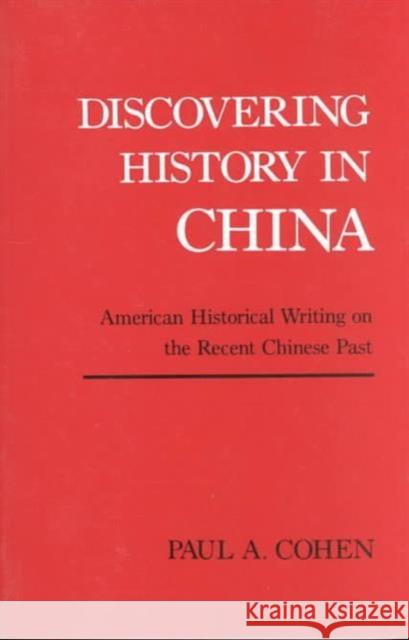Discovering History in China: American Historical Writing on the Recent Chinese Past » książka
topmenu
Discovering History in China: American Historical Writing on the Recent Chinese Past
ISBN-13: 9780231058117 / Angielski / Miękka / 1985 / 243 str.
Serious study of nineteenth- and twentieth-century Chinese history did not really get under way in the United States until after World War II. Since then, scholarly publication has proliferated and a genuine professional field--by far the largest and most active in the West--has taken shape. Now, for the first time, we have a critical, book-length analysis of this development, written by an insider and structured around the leading conceptual approaches that have informed American scholarship in the postwar decades.
In Paul A. Cohen's view, the supreme problem for American students of Chinese history, particularly in its post-Western impact phase, has been one of ethnocentric distortion. The first two chapters of the book explore this problem in connection with the two approaches that were most influential in American scholarship of the 1950s and 1960s--the impact-response and modernization (tradition-modernity) approaches. In chapter three, Dr. Cohen argues that a third major approach, the "imperialism" approach, although emerging in the late 1960s as a critique of the two earlier approaches, has been no less Western-centric in its basic presuppositions. The final chapter traces the increasing efforts of American historians to move beyond the Western-centric paradigms of the past toward a more China-centered approach to recent Chinese history--an approach that strives empathetically to reconstruct the Chinese past as the Chinese themselves experienced it rather than in terms of an imported sense of historical problem. Dr. Cohen concludes with a discussion of some of the implications of this new approach for our understanding of recent Chinese history. Students of Chinese history, Sino-American relations, and the evolution of American historical scholarship on non-Western societies will welcome this perceptive and thought-provoking book.










